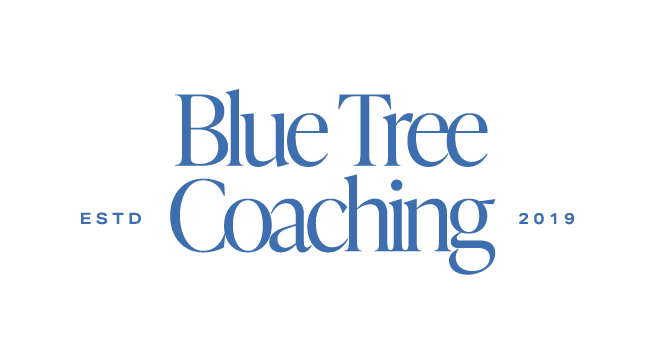CATEGORIES
Can You Trust Yourself
So often, we say we’re going to do something, and then we don’t. Work out, write a newsletter, schedule in time for strategic thinking on growing our business, get through the pile of bills, clean our closets, meal prep on weekends, etc. (these are all real life examples from some of my clients).
Can you trust yourself? We blame a lack of confidence, willpower, time, or some other mysterious force outside of ourselves that just gets in the way. The truth is that self-trust is built from the inside out. We can build our reservoir of trust by learning how to follow through on our commitments to ourselves. This happens in the same way we would simply build a muscle: with repetition and practice. Our ability to follow through, and therefore trust ourselves more, stays weak unless we exercise it.
A friend and fellow yoga teacher named Joe has a t-shirt that says, “Because I said I would.” I’ve talked about Joe before; I’ve even written about him in my book Radi8: Using the Practice of Yoga to Cultivate Your Inner Shine. Joe wore this t-shirt dozens of times during the teacher training program that we did together. I love the simplicity of the sentiment, and I love even more how Joe embodies it. He shows up when he says he will, with complete trust in himself. Without exception.
How can we be a little more like Joe? How can we adopt some of his positive qualities and personality traits?
How Do You Believe in Yourself?
I have good news. It’s actually pretty simple.
Here is a 4-step process that is sure to increase your ability to commit to yourself and your goals.
- Set a goal that’s specific and measurable.
- Plan in advance what you’re going to do and when.
- Follow your goal by keeping it at the forefront of your mind and acting accordingly.
- Repeat.
Set Goals
Let’s tease this apart. When it comes to setting a goal, you’ve probably heard of the SMART acronym. It stands for specific, measurable, achievable, relevant, and timely. I think a better way to think about goal setting is answering these two questions: why do I want this? And how will I know when I’ve achieved it? These two questions get at the heart of being intentional and measurable with our goals.
Plan in Advance
When it comes to planning in advance what you’ll do and when, you want to consider what are the components of the goal. Consider breaking it into mini-steps, so you have markers along the way. This also helps you think of your goals more as steps along a journey rather than as a destination in and of itself.
What I most appreciate about planning in advance what is happening and when is that it provides us a roadmap of sorts to make progress. We don’t need to get stuck in confusion or indecision about what we need to do. We’ve already decided, so we just need to stick to our plans.
Remember Your Goals
There’s a Buddhist quote that I love that reads “the most important thing is to remember the most important thing.” It can be easy to set our goals and make our plans and then forget all about them. This is where step number three comes into play. Keep your goal top of mind. Putting it in writing, and refer to what we’ve written daily, is an easy way to accomplish this.
Repeat
The final step of this four-part process is simply to repeat steps one through three. This is not one and done work. To build a solid foundation of self-trust, we must engage in this work again and again.
So there it is. A simple process to build your sense of trust in yourself.
If it’s so simple, you may be wondering, why do so many of us get tripped up on even small life decisions and commitments?
In large part, we don’t follow through on our commitments to ourselves because we’re under the mistaken impression that we should, as much as possible, feel good in the moment. But as evolving humans, we’re meant to prioritize lasting pleasure and growth over instant gratification.
Let’s acknowledge that this can be hard, and actually runs counter to popular culture messaging that feeds the “I’ll do what I want when I want” narrative that steals so many of our dreams. The result is not only that we don’t make progress into healthier habits and other metrics of our personal evolution that we actually really care about. It’s also that we get more and more mired in a lack of self-trust, which in turn erodes our confidence.
Let’s dissect this idea of trust, as it’s a quality we can cultivate that can yield big emotional and practical dividends in our lives.
Think of someone in your life that you completely trust. You never have to wonder if they’ll do what they said they’d do; you just know they will. I have zero trust issues with my husband and my besties. Do you have such wonderful people in your life? Whatever your answer to this question, what if you could add one more to the list, and that person was you? Really imagine what it would be like to know, deep in your bones, that if you tell yourself you’ll get something done, it’s as good as already done. Pretty amazing, right? You can create that. It’s entirely in your control.
To that end, this week schedule in one or two things you’ve been putting off. Be specific in your plans and include exactly what you’ll do and when. Then, when the appointed time arrives, just do it with excellent self-trust and emotional intelligence, whether or not you feel like it. Consider this a sizable deposit into the trust model you have with yourself. By following this simple protocol on a consistent basis, you will not only get more of what matters to you done, but you’ll trust yourself to do so like never before.
Can You Trust Yourself?
It is often the case that building trust in this manner is not a matter of willpower or being worthy or somehow good enough. Our mental blocks often come from our very human desire to avoid negative emotions. If you are feeling stuck, consider working with a life coach who can help you change your mental patterns and create new ways of relating to yourself.
Click here to schedule a complimentary clarity call if you’re looking for more support!

